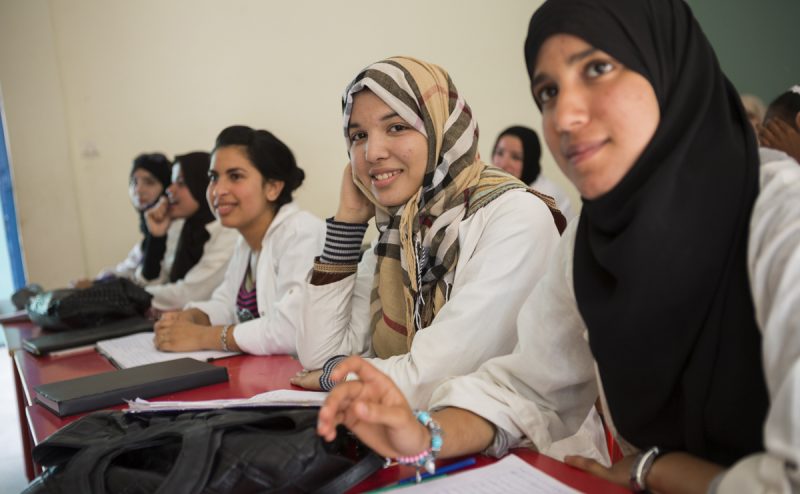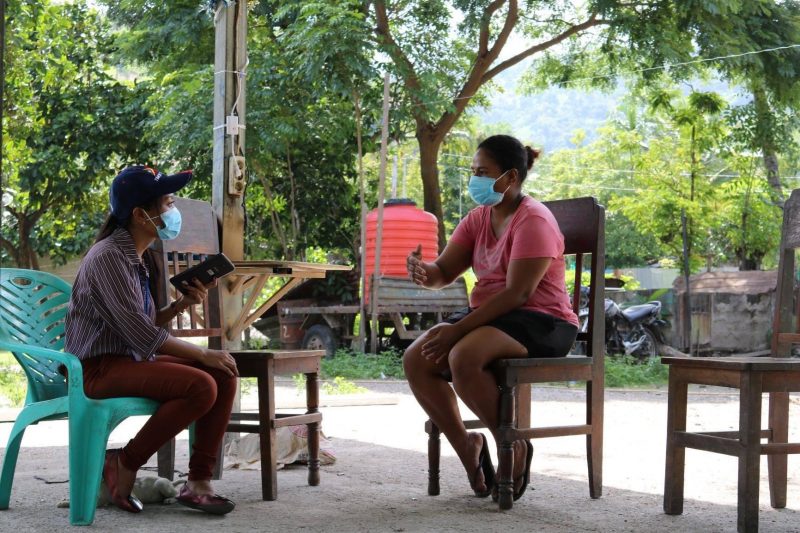
MCC
In Morocco, MCC’s Social Behavior Change group is working to enhance training for teachers and school administrators as part of MCC’s Morocco Employability and Land Compact.
By the end of the project, 615 water access points had been constructed, more than the original target of 600. However, follow-up analyses revealed that rates of waterborne illnesses did not decrease, and a closer look at the issue revealed why—people were collecting water in contaminated containers that spread disease.
Mozambique is just one of many examples at MCC that illustrates how successful results hinge not just on providing people with infrastructure—roads, transport, electricity, water—but also in addressing human behavior. It is this insight that led to the development of the Social Behavior Change (SBC) team at MCC.

MCC
SBC researchers survey households in Dili, Timor-Leste, on water and waste management.
In Morocco, the MCC country team is working to promote the use of interactive lessons in classrooms rather than simple lectures. Not only are interactive lessons more fun and engaging, they also have been found to enhance student learning.
The SBC team analyzed the differences in COM factors between teachers who did and did not use interactive lessons. They found that teachers who used interactive lessons were more likely to see such lessons as connected to student success.
After ample input from teachers and development professionals in Morocco, the SBC team recommended that teacher trainings focus on getting teachers to view interactive learning as directly connected to student success. Strategies the SBC team recommended to improve the success of the training included teachers hearing testimonials from colleagues who embrace interactive learning and encouraging teachers to create “learning circles” where they can exchange tips.
The SBC team fulfills a critical need in MCC’s rigorous process to design and develop investments. Since its inception, the SBC team has been at the table during program development to ensure human behavior is addressed to help MCC better meet its goals. In addition to their efforts to improve teaching practices in Morocco, the SBC team is working to increase energy access in Kosovo and Senegal, ensure payment of water bills in Mongolia, expand access to agriculture markets in Lesotho, and reduce human interaction with contaminated water in Timor-Leste.
MCC investments seek to boost economic growth and reduce poverty in MCC’s partner countries, and the SBC team plays a critical role in the success of MCC’s investments around the world. To date, MCC has signed 37 compacts with 29 countries worth more than $13 billion.

